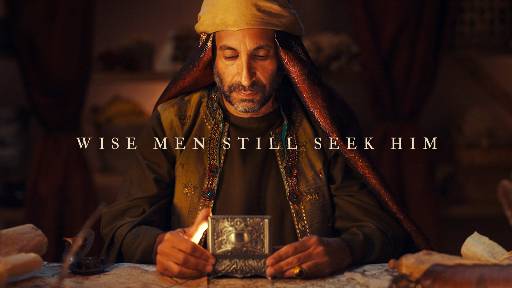-
We Three Kings
Contributed by Geoffrey Foot on Jan 1, 2018 (message contributor)
Summary: We all know the hymn, 'We three kings of orient are..' but do we know the gospel facts underpinning this hymn and the significance of that visit to the child Jesus?
We 3 kings
Matt 2:1-12
When you think of Christmas carols that are appropriate with Epiphany I’m sure you will come up with: “We Three Kings of Orient are. ...”
But ironically in just that 1st line of 5 words there are 3
very slight errors but that does NOT subtract from the importance of this very important festival of the Christian church.
We don’t know that the Wise Men were three in
number, they were probably NOT kings, and they did NOT come from as far away as the Orient, ie, the Far East.
The Greek of the NT when translated simply calls them “magi from the East,” and the term magi is usually translated as magicians (hence the derivation of that term), wise men, or astrologers.
And “the East” has variously been identified as any country from Arabia and Babylonia to Media and
Persia (both in modern Iran), but no farther east.
The magi were an ancient priestly caste among the Babylonians and Medo-Persians and these priest-sages, were extremely well educated for their day, experts in religion, history, medicine, astronomy, astrology, divination, and magic.
The safest conclusion is that the Magi of the Nativity were either Persian or Babylonian, perhaps both,
since Persia controlled Babylon for many years.
Whatever their origin these eastern sages, their visit was of great significance for later Christianity:
The Wise Men were pagans, not Hebrews, and the fact that Gentile magi performed the same adoration
as Jewish shepherds symbolized the universal outreach for future Christianity.
In the OT lesson the prophet Isaiah foretold this momentus event, “Nations [Gentiles] shall come to your light and kings to the brightness of your dawn” (60:3).
And so they have, since Gentiles comprise the overwhelming majority of Christians today, the Magi were our representatives at the Nativity.
The light they saw in the baby at Bethlehem pierced the darkness of their paganism, just as the Light of the World can illuminate the darkness of sin, ignorance, fanaticism, and terrorism surrounding us today.
How the Magi were alerted to the Nativity is a mystery and Matthew doesn’t go into great details about this as he had a far more important story to tell:
The great good news of how God revealed His Son not just to Jewish people, but to all of humanity everywhere.
Three small boys were in a Christmas play at school - they were the three wise men and they has to give their gifts to Jesus.
The first boy stepped forward, held out the gift in his hands and said, “Gold.”
The second boy stepped forward, held out his gift and said, “Myrrh.”
The third boy stepped forward, held out his gift and said, “Frank sent this.”
The gifts that the wise men brought the baby Jesus are very significant in what they represent:
Gold in honour of a King and Jesus is the King of all kings
Incense to the priest they bring and Jesus is our Great High Priest who makes intercessions for us.
Myrrh for time of burying and Jesus was crucified, died and was buried but it didn’t end there He conquered death and rose on the 3rd day.
All this is so significant in this wonderful feast of the Epiphany which means ‘manifestation’ – the showing forth and one name for today is, ‘the manifestation of Christ to the Gentiles.’
The showing forth of Christ to the gentiles, the light of the world which St. John explains so well at the start of his gospel:
In him was life, and that life was the light of all people. The light shines in the darkness, and the darkness did not overcome it
What began as the light from a single star has now illuminated the entire globe through the One who
said, “I am the light of the world. Whoever follows me will never walk in darkness, but will have the light of life” (John 8:12).

 Sermon Central
Sermon Central



